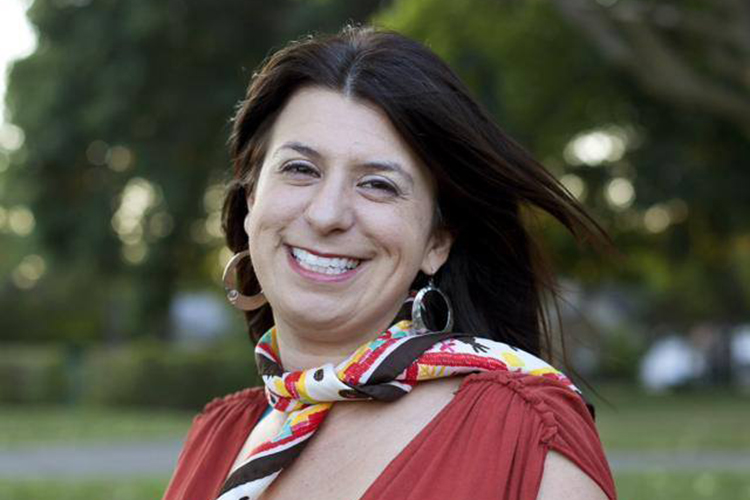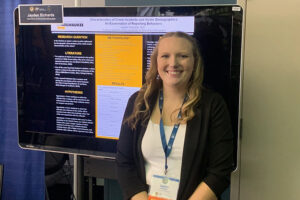Doulas are birthing professionals who provide information and emotional and physical support to expectant mothers. Usually hired by private clients, they are on-hand for pre-natal appointments and labor itself.
UWM alumna Cara Kreuziger has a unique clientele for her doula practice.
She works for the Minnesota Prison Doula Project, a nonprofit that gives pregnant inmates access to doulas during their pregnancies.
“(Prisoners) don’t have any support while they are giving birth. They can’t have their family or friends with them. It’s just the hospital staff and corrections officers in the room,” Kreuziger said. “Before birth, doulas help you process past experiences that can hinder an easy birth. You can build up a lot of trauma that can make it hard to go in and relax and have a baby.”
A Milwaukee native, Kreuziger graduated from UWM with a degree in French, a subject she picked because her grandmother was a native speaker. After graduation, she earned a paralegal certificate from Milwaukee Area Technical College and worked in several courts as she and her family moved between Wisconsin and Minnesota for schooling and jobs.
Kreuziger hired doulas for the births of her children and became an advocate for pregnant women. She became a doula herself after the birth of her second child.
She volunteered at a local hospital and worked with private clients before joining the Minnesota Prison Doula Project. It gave her a chance to combine her interest in the legal system with her new profession.
Six to 10 percent of women are pregnant when they enter prison, according to the Minnesota Prison Doula Project. Founded in 2010, it matches incarcerated pregnant women with doulas who conduct parenting classes and teach clients how to care for their infants. Kreuziger stays with her clients throughout their deliveries and provides much-needed emotional support when the women must return to prison without their newborns. The infants are placed with relatives or in foster care until their mothers are released.
“I have prenatal appointments with my clients before their due date. I’m there for the entire birth. That could mean a day or a few hours,” Kreuziger said. “The point of a doula is that there is continuous care. There’s no shift change; you’re dedicated to this mother throughout her birth.”
The results are undeniably positive.
“Right away, there was a drastic decrease in intervention rates. C-sections decreased – at least in half,” Kreuziger said. “We could see right away that the officers were glad to have us there in the room. It was a lot less pressure on them.”
In the first year the Minnesota Prison Doula Project was working with prisons, the rate of Cesarean sections dropped from 63 to 3 percent. That saved the prison system money since C-sections and subsequent care cost more than vaginal births. In addition, no children born in prison were premature, compared to 22 percent of births among uninsured women nationwide, and all the babies were born at a healthy weight. Women reported feeling more confident in their parenting skills and forming stronger bonds with their infants.
Kreuziger had one client who wrote an article for the prison’s quarterly newsletter detailing her experiences. The inmate was especially touched by how Kreuziger gave her a knit blanket to keep with her so that it would smell like her when she sent it home with her newborn and returned to prison.
“A major fear of mine was to give birth and feel as though I was nothing more than a criminal,” the woman wrote. “Cara met me at the hospital and she comforted, encouraged, and offered words of strength to continue. And, although I was a prisoner of Shakopee, with the help and love from my doula, I birthed a happy, healthy, stress-free baby boy.”
Kreuziger said she was happy to have made a difference.
“It was nice to see that something like that touched her so deeply,” she said. “I think we’re helping them see that they’re not bad people; they just made a bad decision and there’s hope.”








